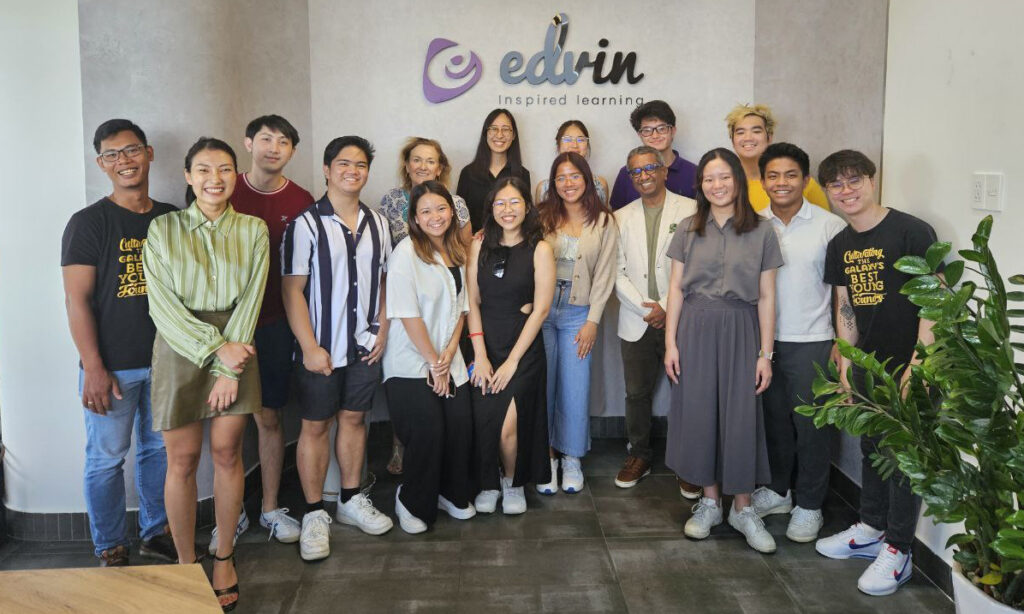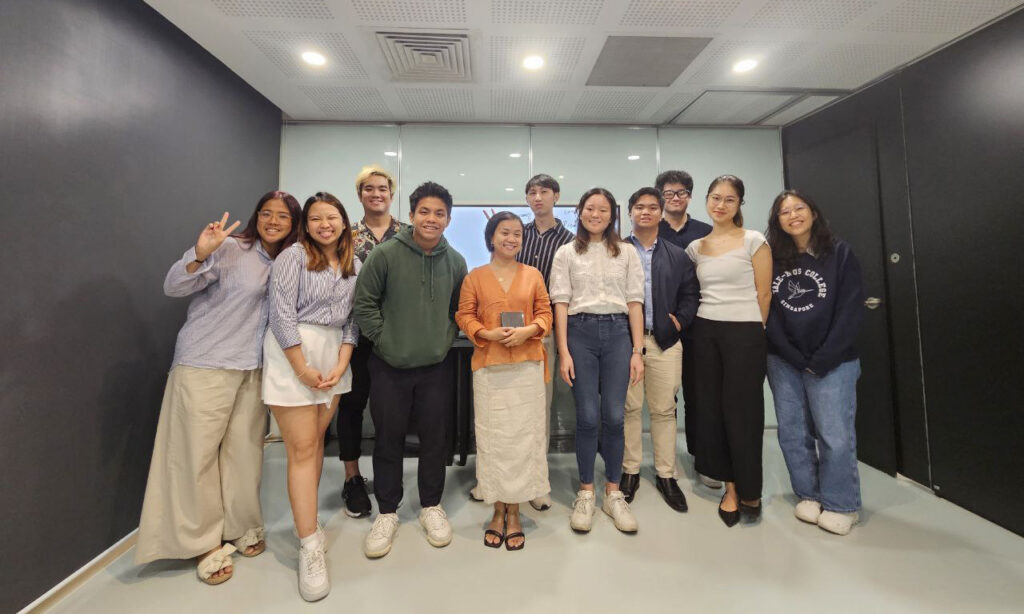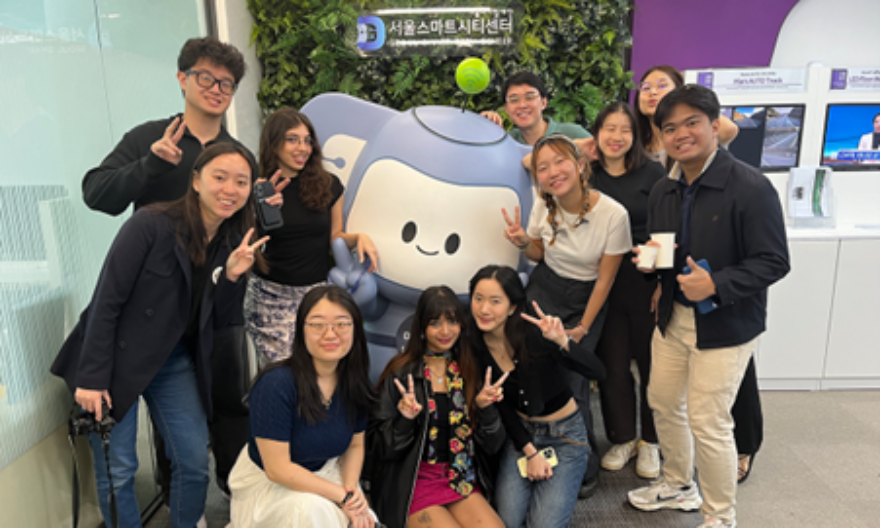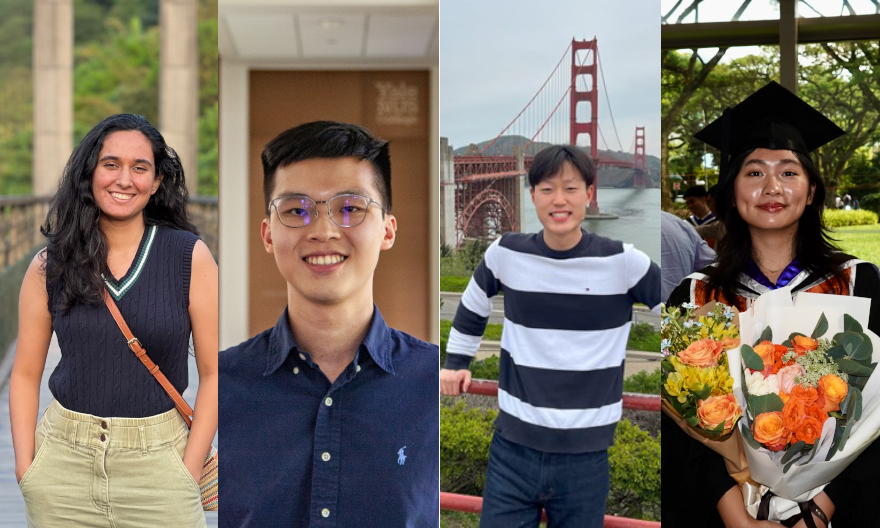Taking entrepreneurship across borders
Yale-NUS students embark on a study trip to Vietnam to learn more about its start-up ecosystem
 Yale-NUS students went on an entrepreneurship trip to Ho Chi Minh City, Vietnam where they engaged with founders from different industries and visited innovation spaces. Image provided by Ashley Yong.
Yale-NUS students went on an entrepreneurship trip to Ho Chi Minh City, Vietnam where they engaged with founders from different industries and visited innovation spaces. Image provided by Ashley Yong.
To support entrepreneurship, and cultivate creativity and risk-taking in students, the Centre for International & Professional Experience (CIPE) at Yale-NUS College runs an annual entrepreneurship programme which comprises a bootcamp and an overseas learning trip.
In May, a group of Yale-NUS students who had successfully completed the bootcamp held in March embarked on a week-long experiential study trip to Ho Chi Minh City, Vietnam to further their projects and experience the start-up ecosystem there.
The participants comprised students in varying stages of their entrepreneurship journeys – those with a start-up in ideation stage, those with a semi-launched start-up, and those who have already launched their start-up.
Miguel Concha (Class of 2025) is working on developing his healthcare start-up called Praxis, which would offer virtual reality healthcare courses to upskill the healthcare sector (including students, nurses, and doctors) in the Philippines. During the trip, Miguel met Eddie Thai, a venture capitalist helming Ascend Vietnam Ventures and 500 Startups Vietnam. Through his conversations with Eddie, Miguel was inspired by what he learnt about impact investing and what it could do for the start-up ecosystem in Vietnam and in turn, how this could benefit the rest of the community. He felt that “impact investing could be a way to encourage positive growth in the Philippines, specifically in sectors that do not receive much funding yet touch the lives of many in the community.”
In Vietnam, students engaged with founders from different industries, toured innovation spaces, consulted potential investors on how to refine their pitches and business models, and pitched their start-up ideas alongside student founders from RMIT Vietnam. Aside from these opportunities, there was also a panel and networking session that allowed the participants to understand the challenges and opportunities entrepreneurs faced, while providing a platform to collaborate on future opportunities or business ideas.
 The participants with Olivia Nguyen after attending her session on EasyGop. Image provided by Ashley Yong.
The participants with Olivia Nguyen after attending her session on EasyGop. Image provided by Ashley Yong.
Another participant, Marcellinus Jerricho (Class of 2024) shared about how he furthered his understanding of start-ups through the programme, where he explored the directions in which his start-up on sustainability-centric social media content creation could go into.
Through the bootcamp, Marcellinus and his team realised that their idea better suited the business concept of a small to medium-sized enterprise rather than a start-up given the former’s small market and relatively non-disruptive business model. For him, the most impactful session was that given by Olivia Nguyen on her start-up EasyGop, where she shared on her experiences securing funding and handling business operations. With his idea in mind, he learned that “[his] venture idea needs a more disruptive business model in order to get funding, so [his] team decided to start out smaller to minimise risk.”
Chelsea Ho (Class of 2023) joined the programme to further grow Picknic, which was a Hult Prize regional finalist in its Melbourne Impact Summit held in 2021. Her project uses data science to develop personalised diets for cancer patients, which is a subject that Chelsea is very passionate about. Chelsea shared that although she is still very new to entrepreneurship, she felt the programme would be a great way for her to meet other start-up founders and to get an overview of entrepreneurship that she might not have learnt about before.
For Chelsea, the session that was most impactful was the one by Professor Nhan Nguyen at RMIT Vietnam where he shared a different perspective on what successful entrepreneurship could look like.
While many people measure the success of a start-up on its financial profitability, Prof Nhan Nguyen showed the participants how they could shift their thinking to measuring the social impact of their start-ups. “It was a reminder that making an impact in spaces that may not have a large enough market size is worth it if we genuinely care about a problem, and that we can always be creative about finding paths towards the financial sustainability of our ventures,” reflected Chelsea.





